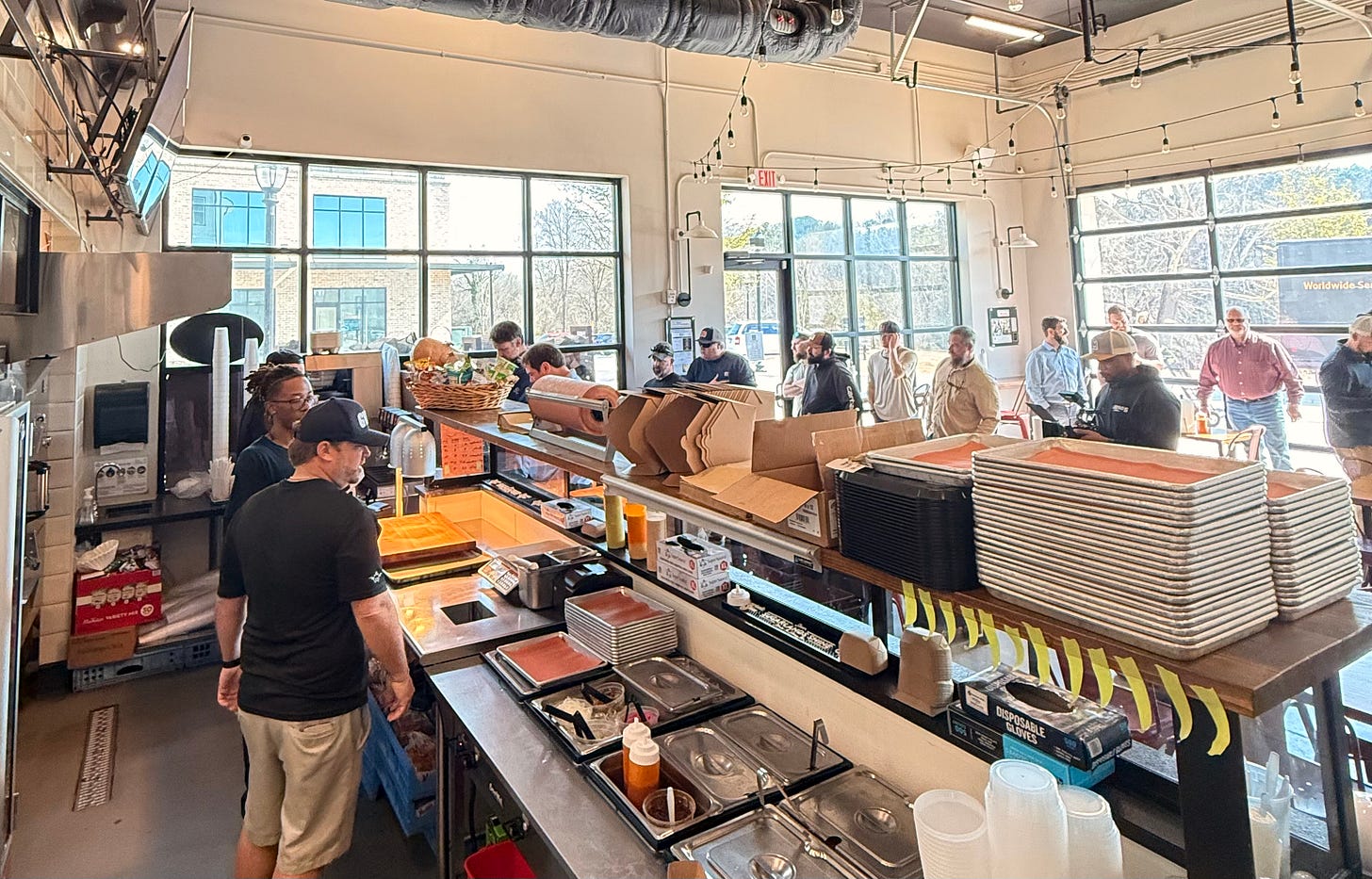Why Do We Expect Barbecue to Prove Its Worth?
The pit wasn’t about prestige, it was about feeding family, church, community. Smoke was the original equalizer.
There’s a quiet ritual that plays out in barbecue joints across the country. Someone leans over the counter, scanning the trays of brisket, ribs, pulled pork, maybe a glistening sausage or two, and then, almost casually, asks: “Can I try a sample?”
It seems harmless enough, almost expected in some circles. A small bite of meat, just enough to judge the pitmaster’s smoke, seasoning, and skill before making a choice. But scratch beneath that surface request, and there’s a bigger question simmering: why is barbecue one of the few cuisines where free samples feel like part of the transaction?
You don’t step into McDonald’s and ask for a taste of a quarter pounder. Nobu isn’t sliding you a sliver of yellowtail before you commit to the sushi. Ruth’s Chris isn’t carving off an ounce of filet to help you decide whether you want the eight-ounce or the twelve. In those dining rooms, the value of the meal is already assumed, embedded in the brand, the culture, the perception of what dining there means. Yet, in barbecue, the expectation lingers, sometimes spoken, sometimes just hovering in the air, that the pitmaster should prove their work, one toothpick-sized cube at a time.
And that’s the rub. It’s not about the meat. It’s about value.
Barbecue has always been labor-intensive. The hours tending the fire. The cuts that require patience, smoke, and skill to transform. The wood that burns down to embers while the pitmaster battles time, weather, and fatigue. Each slice of brisket isn’t just protein, it’s hours of invisible labor turned tangible. Yet, too often, the craft is treated as something to be questioned, sampled, or bartered against.
I don’t write this to point fingers or scold. The issue is deeper than that. It’s cultural, historical, and frankly, complicated.
Consider this: French cuisine built its foundation on aristocratic kitchens and Michelin pedigrees. Japanese sushi gained international acclaim, wrapped in centuries of ceremony and exactitude. These traditions arrived at the table preloaded with value, their worth rarely in dispute. But barbecue’s roots? They are working-class, communal, born from necessity and survival as much as from culinary ambition. The pit wasn’t about prestige; it was about feeding family, church, and community. Smoke was the original equalizer.
That origin is both the beauty and the burden of barbecue. Its accessibility has always been its strength, yet that same accessibility has made it harder to cement its place as “fine dining” in the public eye. Which leads us back to the counter, to that request for “just a taste.” The unspoken assumption being: prove it to me.
In today’s food world, where lists and rankings dominate, barbecue gets further tangled. A spot on “Top 50 BBQ” can put a restaurant on the map overnight, with lines stretching around the block. But lists also fuel comparison, competition, and a race to the top that doesn’t always elevate the craft itself. They rarely shift the deeper perception that barbecue is worth paying for without a sample, without hesitation, without doubt.
So what’s the path forward?
Maybe it begins with a conversation. With pitmasters and diners alike acknowledging that barbecue isn’t lesser because it was born from slaves and fire pits instead of gilded kitchens. That a slice of brisket can hold as much value as a cut of wagyu or a plate of toro. That we don’t need lists to validate what has always been true: barbecue, done right, is craft, culture, and community all in one.
This isn’t to say free samples should disappear entirely. Hospitality is still the backbone of barbecue, and a well-timed bite can feel like a handshake, a gesture of welcome. But when that bite shifts from generosity to expectation, when it becomes a metric of worth, that’s when the conversation must change.
Because if we don’t begin to reframe how barbecue is valued, both within and beyond its community, we risk leaving it forever in the category of “prove it to me” food. And that does a disservice to the smoke, the pitmasters, and the generations who’ve kept the fire burning.
At the end of the day, maybe the better question isn’t whether barbecue joints should give free samples. Maybe it’s why we ever felt the need to ask in the first place.



